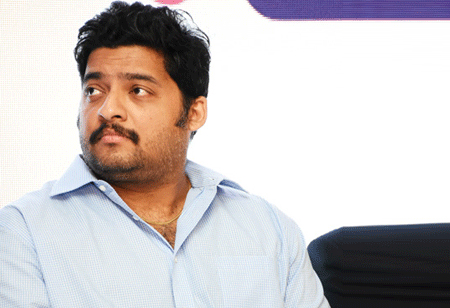
Research, Prevention & Care: The Promise of Artificial Intelligence in Healthcare


Sujay Sambamoorthy, CEO, Parvathy Hospital, 0
Technology and innovation are not only linked to selfdriving cars, smart watches, intelligent machines or highperformance computer processors, but increasingly they are closely linked to health management and health. And probably it is through the implementation of advanced systems that healthcare could also get benefited. AI could tomorrow revolutionize the diagnosis and treatment of diseases, provided that it can use a large mass of reliable data.
Imagine for example a database that stores millions of orthopaedic images, some with fractures, broken bones and other images which are post surgical or corrected fractures, or regular structured bones. This data, if analysed and processed with speed and precision, could immediately give multiple option/ solution for the doctors basis past outcomes and also create a comfort zone to the patient as well as their family members on the treatment plan and expected outcome. This would result in a much needed ‘easing of pressure and uncertainty’in patients. Initial test and reports indicate that AI can help diagnose a patient 30 times faster with 99 percent accuracy.
Artificial Intelligence as a concept remains very difficult to define. In simple man’s understanding, it’s basically an algorithm centred on an ambitious objective to understand how human cognition works and to help them optimize it. Over the past many years now, researchers are developing multiple approaches and techniques, from language processing, to big data analysis to machine learning. All these are leading to enhanced clinical care, with assisted operations, remote patient monitoring, and personalized treatments. AI could well become the heart of the medicinal care.
In line of health, the potential of AI seems enormous. The latest techniques and algorithms allow us to give real medical value to the accumulation of huge masses of data. The applications and tools help us accelerate research and provide medically visible results. In line of prevention use of AI tools besides the sizable data collected over many years makes it possible to identify risk factors for certain diseases such as cancer and diabetes amongst others.
Many a times, I speak to fellow staff doctors, friends and family on impact of AI in healthcare, many often tend to think that the hospital of the future is going to be a cold, dehumanized place, where everything is done virtually. However in my mind, the hospital of the future will be ‘more human’.
I believe there are things that a machine can do super fast. Therefore, AI will help us do the job better and will give our doctors more time to treat our patients and give more clarity and options for a particular concern, which might not have been on top of their mind, otherwise.
On top of all this, AI can help doctors access medical knowledge. An algorithm can memorize all existing medical knowledge and provide doctors with relevant information for their case by matching the database with the patient’s health records. Using AI in medicine will not only accelerate the processes, but also reduce costs and eliminate the burden of medical facilities with few staff.
I’ve read about how hospitals like Shanghai Hospital are taking big strides in use of AI by developing inhouse AI tools that deliver value driven solution to patients. It’s not just about developing applications basis data that benefit the doctors, but also help create newer tools in the field of remote patient care which goes a long way in keeping in touch with your patient and still managing their health, which to me, should be the way forward.
AI is here to stay, and instead of thinking about whether it makes sense or how it can help, we should accept the modern methods of advanced intelligence and make good use of it delivering enhanced patient care.
Many a times, I speak to fellow staff doctors, friends and family on impact of AI in healthcare, many often tend to think that the hospital of the future is going to be a cold, dehumanized place, where everything is done virtually. However in my mind, the hospital of the future will be ‘more human’.
An algorithm can memorize all existing medical knowledge and provide doctors with relevant information for their case by matching the database with the patient’s health records
I believe there are things that a machine can do super fast. Therefore, AI will help us do the job better and will give our doctors more time to treat our patients and give more clarity and options for a particular concern, which might not have been on top of their mind, otherwise.
On top of all this, AI can help doctors access medical knowledge. An algorithm can memorize all existing medical knowledge and provide doctors with relevant information for their case by matching the database with the patient’s health records. Using AI in medicine will not only accelerate the processes, but also reduce costs and eliminate the burden of medical facilities with few staff.
I’ve read about how hospitals like Shanghai Hospital are taking big strides in use of AI by developing inhouse AI tools that deliver value driven solution to patients. It’s not just about developing applications basis data that benefit the doctors, but also help create newer tools in the field of remote patient care which goes a long way in keeping in touch with your patient and still managing their health, which to me, should be the way forward.
AI is here to stay, and instead of thinking about whether it makes sense or how it can help, we should accept the modern methods of advanced intelligence and make good use of it delivering enhanced patient care.